Covert Action (CA) has been a point of contention within political and foreign policy discourse, with constant discussions about the legalities of targeted killings and enhanced interrogation techniques.
There are vast historical examples of U.S. intervention abroad which complicated matters in their respective regions, in some cases having an opposite effect than what was intended, in other cases resulting in scandals that eroded the public’s faith in governmental institutions, and in other cases simply resulting in a less stable country or government. Given the historical contexts and U.S. entrenchment in foreign countries, covert action has drawn a significant amount of attention. In spite of all the discussion about covert action, it is undeniable that it can be extremely beneficial when dealing with foreign powers and with new issues like non-state actors and international terrorism.
Terminology
Covert Action, as defined by Article E, §3093 of Title 50 of the U.S. Code, is when the U.S. Government uses activities, “to influence political, economic, or military conditions abroad, where it is intended that the role of the United States Government will not be apparent or acknowledged publicly” while including provisos that this activity does not include intelligence gathering or counterintelligence missions nor traditional law enforcement and military support activities. The Article also is explicit in stating that there can be no action, “which is intended to influence United States political processes, public opinion, policies, or media”.
In a paper for the Air War College, Chuck Banks, a former executive at the Central Intelligence Agency (CIA), further explains how CA, “can be thought of as a continuum, with relatively benign propaganda operations [Iraq War airborne leaflet drops] at one end, paramilitary activity [CIA sponsoring the Contras in 1980s Nicaragua] at the other, and political action [sponsorship of political parties and politicians] in between. Covert operations may be limited to any one of the three types, or in the case of a large scale program, combine all three elements,” while noting that, “in covert operations it is more important to hide the sponsoring role of the United States”. Examining these three operational roles separately allows one to more adeptly examine the pros and cons of these tactics in advancing U.S. foreign policy and see if these techniques are beneficial to the United States.
Propaganda Operations
Propaganda operations and PSYOP (Psychological Operations) historically encompass a great amount of tactics, including releasing predominantly accurate information from the United States Information Agency (USIA) and CIA, utilizing foreign journalists to produce amenable messages, airdropping written works and radios in more totalitarian regimes, broadcasting messages from helicopters and planes, and funding radio stations to more accurately reflect pro-democratic/U.S. messages. The use of psychological operations is an extremely effective tool to advance U.S. interests in foreign lands and this can be seen historically as well.
During the Cold War, these tactics proved beneficial in influencing elections and foreign populaces and were used extensively. During the 1964 Chilean presidential election, Eduardo Frei Montalvo was the Democratic-Christian candidate and ran on a “land and social reform” platform while also having the government partly own the Chilean copper industry; platforms the Kennedy (and Johnson) administration supported, especially being that opponent Salvador Allende was seen as a leftist radical and more amenable to Communist initiatives. Among the tactics utilized by the U.S. in swaying votes towards Frei were, “CIA-controlled assets placed propaganda in major Chilean newspapers and on radio and television; erected wall posters; passed out political leaflets; and organized demonstrations. Some of this propaganda employed “scare tactics” to link Allende to soviet and cuban[sic] atrocities. Other assets manufactured “black propaganda” – that is, material falsely attributed to Allende’s supporters and intended to discredit them”. The U.S. government further sent economic aid to poor areas of Chile and produced “flags, lapels, pins, films, photo exhibits, comic books,” that associated the United States’ Alliance for Progress program with the Christian Democratic platforms.
Frei won the election by 17% and roundly defeated Allende. The CIA’s covert aid, both through economic and propaganda means, has been seen by Latin American historians as being incredibly beneficial to supporting U.S. foreign policy in Chile.
Obviously, the benefits of utilizing propaganda to advance U.S. foreign policy is massive. It allows for the U.S. to influence foreign populaces and make them attuned to a Democratic point of view and allows for people who will be receptive to U.S. aid and will engage in trade to hold positions of power. However, this form of warfare can be controversial due to the fact that black propaganda is disseminating falsities and rumors in addition to the fact that, most publicly, when this action has been taken by the U.S., it is often to support a more right-wing and oftentimes brutal authority (like Augusto Pinochet in Chile or Castillo Armas in Guatemala). Additionally worrisome is the historical context that the CIA had engaged in disinformation operations on U.S. soil utilizing American journalists to influence the public, hired authors to “publish negative reviews of books…critical of the agency” (both of which were illegal and were further codified as such after the Church Committee), and the potential for having American citizens and officials read propaganda that would “waft back” via American journalists reporting on global events.
In short, propaganda and PSYOP are incredibly useful tools for disseminating information and influencing a foreign populace towards a specific view, but the risk is great, provided the government uses significant portions of black propaganda or oversteps their boundaries when utilizing such methods to attain their goals.
Political Action
Political action most often occurs when governments openly support political party candidates and try to assist them in elections. Examples of political action include “Secret payments to friendly foreign politicians and bureaucrats… [using secret funds] to win the favor of influential government officials… help win elections for pro-Western factions… to recruit and build parties and regimes opposed to communism, and to strengthen labor unions in opposition to Communist Party takeovers”. These are obviously beneficial forms of support to foreign countries and can have a significant effect on how U.S. foreign policy is received and how U.S. interests are protected abroad. It also is a less controversial method of influencing a country, as opposed to paramilitary or propaganda action. However, where it becomes controversial is who is getting the aid.
This is probably the biggest risk with covert political action, who gets the aid and money from the U.S. government. During the Cold War, “political parties, individual politicians, or dictators in Italy, Jordan, Iran, Ecuador, El Salvador, Angola, Chile, West Germany, Greece, Egypt, Sudan, Suriname, Mauritius, and the Philippines,” all received aid and money. All of these leaders were anti-Communist and supported Western/U.S. initiatives, which undoubtedly assisted in their gaining aid from the U.S., yet some of these countries which were provided aid also engaged in domestic abuses. As well, extensive involvement in a country could stunt productive political growth, as it did in the Congo in which “national political institutions” were unable to thrive and eventually, “led to the state’s implosion in 1997 and a decade of conflict in which at least 5 million died… the legacy of CIA dependence that began in the 1960s undoubtedly contributed to its [the Congo’s] downfall”. The benefits of this form of action, however, are multiple in that it allows the U.S. to fund politicians supportive of U.S. foreign policy and interests who otherwise may not have stood a chance in an election with foreign support.
Political CA is an effective tool at managing U.S. interests abroad and securing democracy, but the larger key with the action is that the U.S. must have strict guidelines in place as to who can be given money or other forms of aid (e.g., abusive or dictatorial leaders must not be given aid provided they continue their abuses).
Paramilitary Action
Paramilitary action is, without a doubt, the most popular form of CA and the most controversial. Paramilitary CA is defined as, “involving the equipping and training of large armed groups for a direct assault on one’s enemies. They do not involve the use of a state’s own military personnel in combatant units, which technically would be an act of war,” though the author does clarify this statement by stating that some governments have, “practiced a higher level of covert military activity – secret participation in combat”.
This type of action is the most common form of CA and can be seen in many cases abroad and since the creation of the IC. For example, the 1961 Bay of Pigs invasion was a “brilliant disaster” and arguably distanced the U.S. and Cuban governments more than they had been previously while American aid to the Afghanistan mujahidin in the 1980s is alleged to, “have been an important consideration in Moscow’s decision to withdraw from its losing “Vietnam” war”. What is most risky about this action, however, is that paramilitary action can, “jeopardize the inherent values in U.S. democracy and undermine the nation’s commitment to international law…reflect[s] decision making in secret, without public accountability…[and] can be undertaken without informed debate in Congress”. However, paramilitary action like this can result in a swifter end to conflicts and allow the U.S. to assist friendly organizations, though these organizations can be more difficult to control being they are not subject to U.S. legal regulations.
Conclusion
In my view, CA is beneficial in supporting U.S. foreign policy goals, promoting U.S. interests abroad, and encouraging democratic governments and leaders.
Historically, it is apparent that the IC and the U.S. government have gone about supporting leaders who may be somewhat democratic, but are overshadowed by abuses and totalitarian efforts that damage the quality of life for the nation’s populace and their international standing as well as engaging in actions that violate their own statutes. However, with the creation of extensive government oversight in the 1970s and the updating of this consistently when new situations arise, many of these abuses become prevented with congressional, internal, and legal supervision. A report from the Congressional Research Service notes that CA can, “allow the U.S. to exert influence and support friends without acknowledging its role… achieve ends disproportionate to costs, averting wars, saving lives and money… can avoid embarrassment… [and be] conducted on occasions when the introduction of U.S. military personnel is impossible because of international political consequences”. CA is an essential tool for U.S. foreign policy and, while oversight must be maintained, to remove America’s ability to wage covert action would be a mistake.

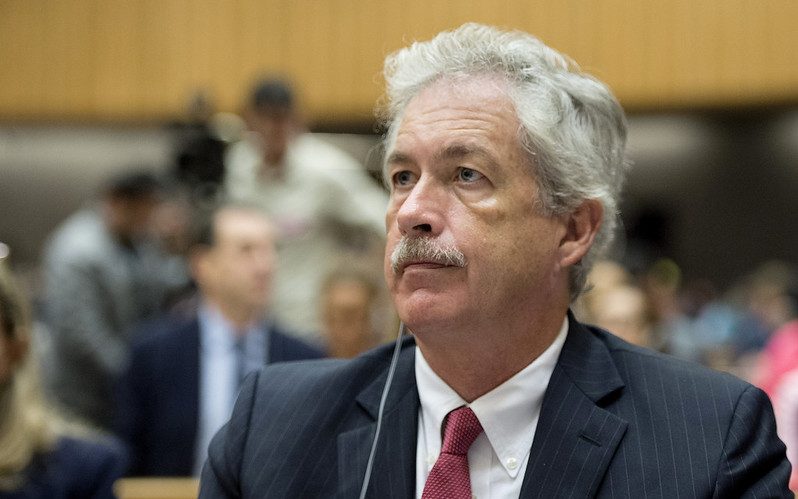
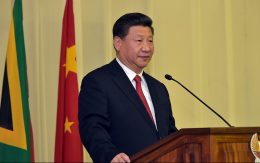
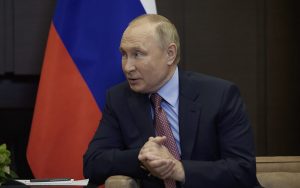
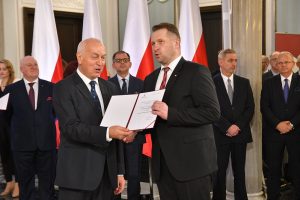
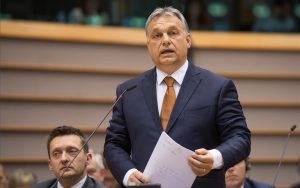
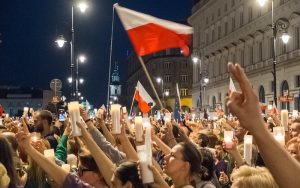

Be First to Comment